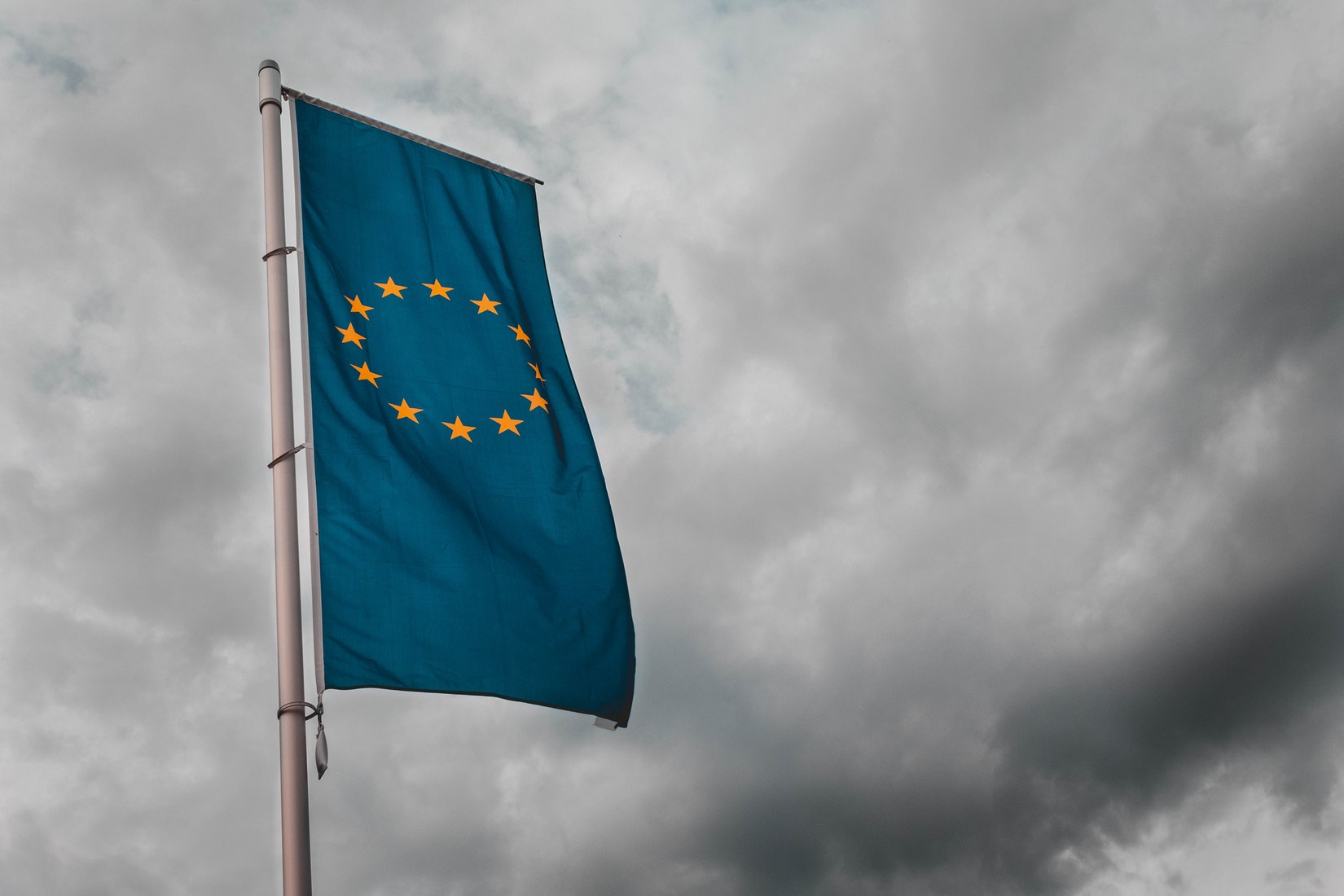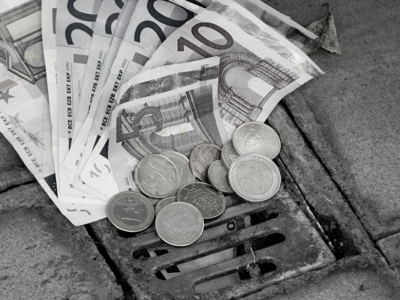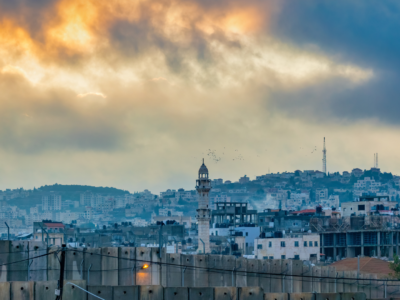EU’s miscalculation on Catalonia and its impact on the Common Foreign and Security Policy

12/02/2021
Downland the report as pdf
Last week’s trip of the High Representative of the European Union for Foreign Affairs and Security Policy Mr. Josep Borrell to Moscow has generated broad criticism. It was conceived at Borrell’s initiative to engage in constructive dialogue with Russia, an idea not supported by all EU members (especially those with a more hostile relationship with Russia, such as the Baltic states and Poland). The joint press conference with the Russian Minister of Foreign Affairs Sergei Lavrov has been considered by many as a humiliation and a painful and avoidable embarrassment for the EU.
One of the issues that Mr. Lavrov raised was Spain’s repressive actions against Catalan political and civil society leaders. Specifically, Lavrov did mention the Catalan political prisoners’ case as an example of courts taking politically motivated decisions in the EU. Mr. Lavrov did so as a warning. He suggested the EU should not meddle in Russian internal affairs, especially regarding Alexei Navalny’s case, as it could backfire.
Borrell has faced massive criticism for what is perceived as a poor performance in Moscow and his lack of response to most of Lavrov’s attacks. This week more than 70 MEPs have signed a letter calling for his resignation. But the reason why Moscow was able to use Catalonia’s case against the EU successfully is a matter that goes beyond Borrell’s performance: the silence of the EU institutions concerning Spain’s persecution of Catalan political and civil leaders.
One of the EU’s Common Foreign and Security Policy’s main objectives is promoting human rights, fundamental freedoms, and the rule of law. The Union lacks the foreign policy instruments of states and its action is limited by the need of general consensus. Hence its foreign policy is based primarily, on the export of the values that define the Union. According to its Global Strategy on Foreign and Security Policy, “the EU will foster the resilience of its democracies, and live up to the values that have inspired its creation and development.” Indeed, the European Union’s capacity and credibility to promote these values overseas are very much related to their standing at home. It seeks to act as a positive example, based on the adherence to a set of so-called European values and rights included in the Treaty of the European Union.
It is a problem, then, when the human rights record of its own members does not adhere to that theory. When it comes to Catalans’ civil and political rights, none of the three central EU institutions (Commission, Council, and Parliament) has done anything to address the issue.
Spain’s response to the Catalan issue: judicialization and breach of the rule of law
Since 2017 Spanish authorities have launched a systematic campaign of repression against the Catalan movement for self-determination, including the persecution of 3,092 peaceful activists and representatives and the imprisonment of 9 civil and political leaders. These are human rights violations that occurred during the last three years have been denounced by the UN Special Rapporteur on torture (25 November 2020), the Special Rapporteur on minority issues (9 March 2020), the Special Rapporteur on the right to freedom of opinion and expression (6 April 2018, 27 May 2020), the Special Rapporteur on the rights to freedom of peaceful assembly and of association (4 October 2017), and the Special Rapporteur on the situation of human rights defenders (December 2018). International NGOs such as Amnesty International and the World Organization Against Torture have also raised their voices against this injustice.
In this regard, in its opinion of June 2019 on the imprisoned Catalan leaders, the UN Working Group on Arbitrary Detention (WGAD) stated, that the purpose of the criminal charge and the resulting trial to the Catalan civil and political leaders imprisoned is to coerce them on account of the political opinions they have expressed”. The WGAD also called on the Spanish authorities to immediately release them, award them reparations, and make legislative amendments to harmonize Spanish laws and practices with their international obligations. The Working Group also considered the deprivation of freedom to be arbitrary when it is targeted at repressing members of political groups to silence them in their claim for self-determination.
More than a year later, Spain has not yet taken any steps to address this situation, as reported by the Working Group itself in September 2020. In 2019, the Working Group issued 85 opinions on the arrest of 171 people in 42 countries, with Spain being the only European Union member state included in the report. Let us emphasize what this means: a UN body is affirming that there are political prisoners in the EU.
The violent crackdown on the October 2017 referendum by Spanish police forces caused injuries to 1066 people. Two years later, the massive civic protests that followed the October 2019 sentences to Catalan political and civic leaders from 9 to 13 years in prison were met with unprecedented violence by regular and paramilitary police forces. The Spanish government deployed thousands of police officers in Catalonia, including the paramilitary forces. According to the Catalan Ministry of Health, over 750 protesters were injured, including 71 journalists, one of which was taken under arrest. The Spanish authorities have not investigated these actions. In many cases, police officers have been even awarded, despite the public expression of concern and a subsequent call made to this aim by the Council of Europe Commissioner for Human Rights.
During the 2020 UN Universal Periodic Review to Spain, numerous violations of fundamental rights related to the Catalan conflict were mentioned. Up to eight-nine stakeholders submitted reports on the state of human rights in Spain. In the 35th session of the review held on 22 January 2020 in Geneva, 117 countries intervened, and 22 of them addressed the violations of civil and political rights in Spain during the last five years, namely freedom of expression and freedom of assembly and association. Out of these 22 countries, eight were EU member states (Germany, the Netherlands, Czech Republic, Belgium, Italy, Cyprus, Luxembourg, Austria).
The president of Catalonia and several ministers went into exile in 2017. In countries such as Germany, Belgium, and Scotland, courts deemed there were no legal grounds to extradite them to Spain, as Spanish prosecutors were requesting. Recently, Belgium officially denied Spain’s bid to extradite Catalan Minister of Culture in exile Lluís Puig and dismissed the European Arrest Warrant. Belgian judges believed that, according to the Spanish Law, the Supreme Court was not competent to try him and raised concerns that Puig’s presumption of innocence was at risk in Spain. The Public Prosecutor at the Brussels Court of Appeal has communicated the decision to the Spanish Prosecutor Pablo Llarena, in a letter that includes a recommendation to investigate whether there is a “risk of violation of fundamental rights.”
Yet, the EU has so far kept silent, even when asked about the case by journalists, its spokespersons have always refused to comment, arguing that it is an “internal affair” of Spain. This contrasts with the active way the EU Commission and Parliament have taken measures to tackle violations of the rule of law in Poland and Hungary, which have not yet entailed jailing of political opponents.
How EU geopolitical rivals do profit from its passivity on Catalonia
The EU’s failure to tackle human rights violations by Spanish authorities against the Catalan people is used by countries to whom the EU has lectured on human rights issues during recent times. Russia is the best, but not the only example. Two of the 2018 EU’s Russia policy five guiding principles are related to democratic rights and principles, one being “the pursuit of closer relations with the former Soviet republics in the EU’s Eastern Neighbourhood (including Ukraine) Central Asia.” That is based on creating attractiveness for the EU by promoting “European democratic values” as a soft-power source. Some countries in Eurasia have put tremendous effort into adjusting to European democratic standards. Catalonia’s experience has clouded public perceptions in those regions of democracy’s value, thus heightening the challenges faced by those trying to bring change.
The second of the above mentioned “five guiding principles” related to human rights is “increasing support for Russian civil society and promoting people-to-people contacts.” The fact that since 2017 an EU member such as Spain keeps imprisoned the leaders of the two largest Catalan civil society organizations (Òmnium Cultural and the Catalan National Assembly), Jordi Cuixart and Jordi Sànchez, sentenced to 9 years for sedition for calling for peaceful protests, really questions the coherence and consistency of this policy, and overall of the concern for the EU for the role of civil society.
In this regard, few days after Mr. Lavrov comments on the cases during his press conference with Mr. Borrell, Russian Ministry of Foreign Affairs spokesperson Maria Zakharova published a message in her social media mocking the Spanish MFA Arancha González Laya as she denied the existence of political prisoners in Spain. Considering that EU-Russia relations will most likely become tenser during the months and years to come, it is quite likely that Russian authorities will keep using this case as a weapon against the EU, therefore weakening its position. Why do EU members with flawless human rights records allow Spain to weaken their geopolitical position?
Another country that has taken good note of this circumstance and is Turkey. In August 2019, during a meeting with international journalists, Turkish Minister of the Interior Suleyman Soylu defended the Turkish government’s controversial decision to suspend three elected Kurdish mayors, all of them members of the Kurdish-rooted People’s Democratic Party elected a few months earlier, and replace them with appointees.
Mr. Soylu likened the elected officials’ removal and prosecution to Spain’s repressive measures against elected Basque and Catalan elected officials. “Although there is no violent act, 12 Catalan officials were prosecuted for crimes of destroying constitutional order through violence and disobedience,” he said. This is an example of how an EU member state’s actions serve as a model for Erdogan’s authoritarian government. Furthermore, as well as a justification to defend itself in case of criticism from the EU.
Another critical case is China. Especially when the EU has placed human rights as one of the main priorities regarding its relationship with the Asian growing power, together with climate change, investment, COVID-19, and the situation in Hong Kong. In November 2017, Catalonia was included at Beijing’s request in the agenda for the inter-parliamentary meeting between the European Union and China. One of the vice-chairpersons of the Foreign Affairs Committee of the National People’s Congress of China asked MEPs about the situation in Catalonia. He asked whether Madrid’s strategy was also the official position of the EU and whether it was to be expected, therefore, that this line would be taken over “other” issues, an implicit reference to the topics of Tibet and Xinjiang.
More recently, in October 2019 the Chinese state-owned media China Daily used repressive measures taken by Spain against Catalan pro-independence movement (both prison sentences for leaders and police violence against protesters) as an example for what kind of treatment could be expected for Hong Kong activists. Also, in October 2019, and concerning the silence of the EU amid the violent police crackdown of protests in Catalonia, in contrast with the harsh condemnation of repressive measures taken in Hong Kong, Chinese Foreign Ministry Spokesperson Hua Chunying’s stated that “democracy and human rights are only a hypocritical cover for Western interference in Hong Kong affairs” and that “double standards and connivance will hurt oneself as well as others”.
Lastly, another case that is relevant for EU foreign policy purposes is the one of Venezuela. In October 2017, President Maduro condemned Spanish police violence against peaceful voters who participated in the referendum. Caracas has issued several statements expressing concern for the violation of fundamental rights by Span, like it was the case during protests against October 2019 sentences. Again, a country that receives criticism from the EU for human rights violations and can lecture an EU member in the same terms.
Conclusion
Spain’s actions against the Catalan people should worry the EU institutions for several reasons.
First, by permitting attacks on its citizens’ rights and failing to condemn human rights violations committed by one of its Member States, much of the EU’s external consistency and credibility as a democratic project is being lost.
Second, the deterioration of the situation concerning civil and political rights in an EU Member State is an issue that erodes the legitimacy of the European integration project, as it directly goes against one of its main foundations: the respect for democracy and fundamental rights enshrined in Article 2 of the Treaty on the European Union.
Third, the EU’s reputation keeps being eroded because of Spanish authorities’ repressive actions against Catalonia. The situation in Spain and EU institutions inaction affects their capacity to project soft power and influence overseas. A so-called “Geopolitical EU” that allows this erosion of one of the leading European power projection instruments is doomed to fail. Now the world is becoming multipolar, new emerging powers are participating in the international debate. Therefore, the EU cannot pretend the Catalan case does not affect its external relations just by ignoring it, as competitors will keep pointing it out.
Lastly, from a non-EU perspective, it is also alarming the fact that it is precisely a European Union Member State the one perpetrating these violations, marking a grave precedent that many other states may follow in the world. The crisis in Catalonia might be a regional issue, but the EU needs to know that different parts of the world are watching developments closely. The EU’s failure to resolve the Catalan issue democratically could help legitimize the use of repressive methods to resolve disputes elsewhere. In other words, while losing ground as a democratic beacon, the EU’s unwillingness to tackle Catalonia’s situation could negatively impact human rights record in different regions of the world.
The longer it takes for the EU institutions and Member States to start pressing Spain to change its behavior and end its repressive strategy on this conflict, the more severe the internal and external harm for the European Union. In this case, inaction will keep weakening the EU’s capacity to project power overseas, and ultimately, the legitimacy, consistency, and international credibility of the European integration project.


